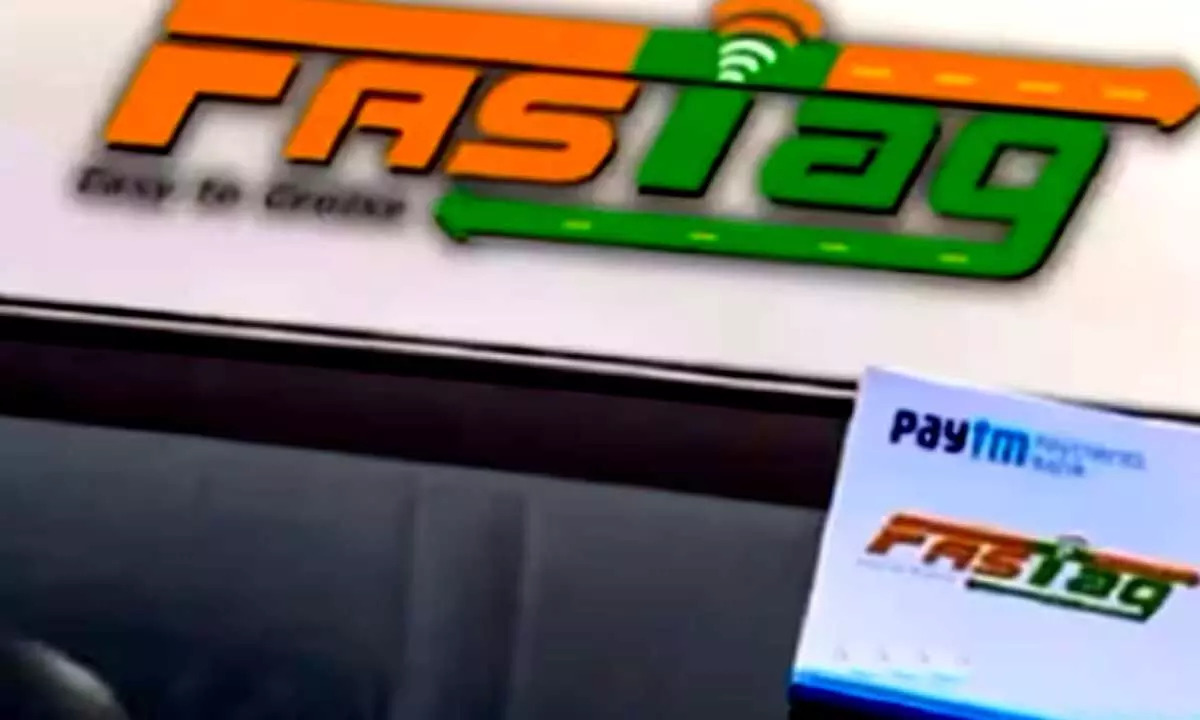Maha Cabinet makes toll payment through FASTag mandatory from April 1
Share :

The Maharashtra Cabinet, chaired by Chief Minister Devendra Fadnavis, has decided to make toll payments through FASTag mandatory at all toll plazas across the state starting April 1, 2025. Vehicle users will be required to use FASTag exclusively for toll payments.
Mumbai: The Maharashtra Cabinet, chaired by Chief Minister Devendra Fadnavis, has decided to make toll payments through FASTag mandatory at all toll plazas across the state starting April 1, 2025. Vehicle users will be required to use FASTag exclusively for toll payments.
Light motor vehicles, two-wheelers, and three-wheelers are already exempted from toll payments at Mumbai's five entry points. However, the new decision will apply to toll plazas located on state highways and roads developed by the Maharashtra State Road Development Corporation (MSRDC).
The Cabinet emphasized that toll payments via FASTag will enhance consistency and transparency in toll collection. It is expected to reduce vehicle delays at toll gates, saving both time and fuel.
As per the government statement, vehicles entering FASTag lanes without an active FASTag or attempting to pay through other means will be charged double the toll amount.
Currently, toll collection is in place on 13 road projects under the Public Works Department and nine under the MSRDC. The new rule will apply to these projects as well as any future toll-collection initiatives.
In another key decision, the Cabinet approved amendments to the Public Private Partnership (PPP) Policy of 2014 to streamline administrative processes. The revised policy aims to make governance more efficient and dynamic.
The Cabinet also approved the publication of updated Maharashtra Government Rules of Procedure, marking the third revision since their inception in 1975. These updates, to be published in the Government Gazette upon the Governor's approval, are designed to enhance administrative transparency, efficiency, and public orientation.
The revised Rules of Procedure consist of 48 rules, 4 schedules, and 1 annexure, divided into nine parts.
The First Schedule contains the names of the administrative departments of the Ministry. The Second Schedule contains matters to be presented before the Cabinet. The Third Schedule is about matters requiring the Chief Minister's approval and the Fourth Schedule contains matters requiring the Governor's approval.
The annexure outlines the procedures for the Council of Ministers and Cabinet, as well as simplified protocols for introducing bills. Provisions have also been made to delegate government orders to the level of Under Secretary.
The updates include newly added tasks for the Planning Department and relaxation in procedural formalities to expedite governance.
A study group of departmental secretaries, formed for periodic rule revisions, conducted a comparative analysis of practices in other states and the Government of India to recommend these amendments.
The Maharashtra government anticipates that these decisions will foster a more transparent and citizen-centric administration while ensuring efficiency in toll collection and governance.













